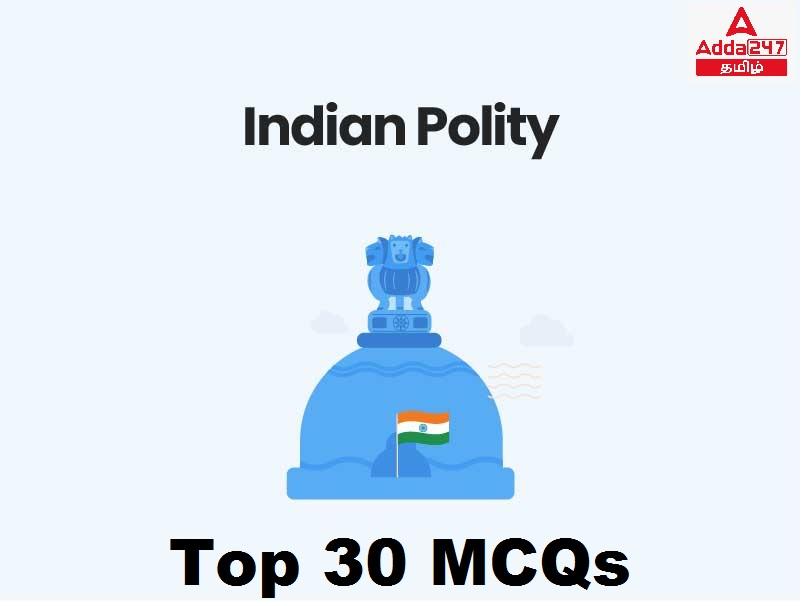பல்வேறு போட்டித் தேர்வுகளில் இந்திய அரசியலமைப்பு முக்கியப் பங்காற்றுகிறது, விண்ணப்பதாரர்களுக்கு அவர்களின் தயாரிப்பில் உதவ, நாங்கள் 30 கேள்விகளை (MCQs) தொகுத்துள்ளோம். உங்கள் இந்திய அரசியலமைப்பு அறிவை மேம்படுத்துவதற்கும், வரவிருக்கும் தேர்வுகளுக்கு உங்களை சிறப்பாக தயார்படுத்துவதற்கும் ஒவ்வொரு கேள்விக்கும் சரியான பதில் உள்ளது.
Q1. ________ is the form of government that has all the power in one person’s hand?
(a) An Autocracy
(b) An Oligarchy
(c) A Monarchy
(d) An Aristocracy
Q2. The First general elections after independence in India were held in______-
(a) 1948-49
(b) 1951-52
(c) 1957-58
(d) 1947-48
Q3. The electoral system in India has been adapted from the system followed in ______.
(a) America
(b) China
(c) Russia
(d) None of these
Q4. From the following Parts, Which part of the constitution of India says about the election commission?
(a) Part III
(b) Part XV
(c) Part XX
(d) Part XXII
Q5.Which of the given statements is/are correct?
1. The Governor of a State is a citizen of India.
2. The emoluments and allowances of the Governor of a State can be diminished during his term of office.
(a) 1 only
(b) 2 only
(c) Both 1 and 2
(d) Neither 1 nor 2
Q6. Which of the following is correct?
(a) The Governor holds office during the pleasure of the President.
(b) The Governor holds office during the pleasure of the Chief Minister.
(c) The Governor holds office during the pleasure of the Attorney General.
(d) The Governor holds office during the pleasure of the Prime Minister.
Q7. “The rights of every man are diminished when the rights of one man are threatened” – This line or quote was stated by _______
(a) John F. Kennedy
(b) Bill Clinton
(c) Jimmy Carter
(d) George Walker Bush
Q8. Match the Following Countries with the Name of the Parliament.
Country – Name of Parliament
(i) Germany – A. Knesset
(ii) Denmark – B. Folketing
(iii) Norway – C. Diet
(iv) Japan – D. Bundestag
(v) Israel – E. Storting
(a) E, C, B, A, D
(b) B, D, C, A, E
(c) C, B, A, D, E
(d) D, B, E, C, A
Q9. With reference to the Chief Minister, consider the following statements:
1. He holds office during the pleasure of the Governor and he can be dismissed by the Governor at any time.
2. He can recommend the dissolution of the Legislative Assembly to the Governor at any time.
Which of the statements given above is/are correct?
(a) 1 only
(b) 2 only
(c) Both 1 and 2
(d) Neither 1 nor 2
Q10. The 73rd and 74th constitutional Amendment Acts were enacted during the year in _____.
(a) 1992
(b) 1995
(c) 1997
(d) 1990
Q11. All important policy decisions of the State government are taken by________
(a) The Governor
(b) The Chief Minister
(c) Speaker
(d) Home Minister
Q12. One-third of The Legislative Council members retire every ______ years.
(a) Two
(b) Three
(c) Five
(d) Six
Q13. Select the constitutional duties of the ChiefMinister from following by using the code given below:
1.The Chief Minister communicates to the Governor all decisions of the Council of Minister related to the administration of the affairs of the States.
2. The Chief Minister communicates to the Governor the proposals for legislation.
(a) 1 only
(b) 2 only
(c) Both 1 and 2
(d) Neither 1 nor 2
Q14. In which year Pondicherry became a part of India ?
(a) 1954
(b) 1956
(c) 1962
(d) 1966
Q15. Which of the following statements regarding the Chief Minister is/are correct?
1. The Constitution does not contain any specific procedure for the selection and appointment of the Chief Minister.
2. According to the Constitution, the Chief Minister must be a member of the Lower house of the State Legislature.
3. The Constitution requires that a person must prove his majority in the legislative assembly before he is appointed as the Chief Minister.
Select the correct answer from given below
(a) 1 only
(b) 2 and 3
(c) 1 and 3
(d) 1, 2 and 3
Q16. ______ refers to the basic rights afforded by laws of the government to every person.
(a) Civil Rights
(b) Social Rights
(c) Economic Rights
(d) Cultural Rights
Q17. When was The Maternity Benefit Act introduced?
(a) 1948
(b) 1951
(c) 1952
(d) 1961
Q18. Which one is known as the modern International Magna Carta of Human rights?
(a) UDHRC
(b) NHRC
(c) SHRC
(d) International year for women
Q19. Consider the following statements regarding the council of ministers in a state:
1. The number of Ministers, including the Chief Minister in a State shall not be less than 15.
2. Ministers in charge of tribal welfare in the state may not be in charge of the welfare of the scheduled castes and backward classes or any other work.
Which of the following statements given above is/are correct?
(a) 1 only
(b) 2 only
(c) Both 1 and 2
(d) Neither 1 nor 2
Q20. Which is the largest High Court in India?
(a) The Calcutta High Court
(b) The Allahabad High Court
(c) The Madras High Court
(d) The Karnataka High Court
Q21. From the following countries, Which country is under the Aristocracy System ?
(a) North Korea
(b) Qatar
(c) Spain
(d) Oman
Q22. Consider the following statements:
1. According to the Constitution of India, a person who is eligible to vote can be made a minister in a State for six months even if he/she is not a member of the Legislature of that State.
2. According to the Representation of People Act, 1951, a person convicted of a criminal offence and sentenced to imprisonment for five years is permanently disqualified from contesting an election even after his release from prison.
Which of the statements given above is/are correct?
(a) 1 only
(b) 2 only
(c) Both 1 and 2
(d) Neither 1 and 2
Q23. When were elections introduced in British India?
(a) 1919
(b) 1920
(c) 1921
(d) 1922
Q24. ______ was part of the Human Rights Act created after the aftermath of World War II.
(a) Social rights
(b) Economic rights
(c) Cultural rights
(d) All of the above
Q25. Indian state to implement women ancestral property Act in 1989 was _______.
(a) Madhya Pradesh
(b) Kerala
(c) Karnataka
(d) None of these
Q26. In India, The Right to Information Act was enacted in ______ month.
(a) September
(b) October
(c) November
(d) December
Q27. How many subjects are there in the Concurrent List?
(a) 100
(b) 61
(c) 52
(d) 40
Q28. Who acts as the Inspector of Village Panchayat?
(a) The President
(b) District Collector
(c) The Mayor
(d) The Councillors
Q29. The Uthiramerur stone inscription shows evidence of prevelant local self-government during the ______ period in Tamil Nadu.
(a) Chola
(b) Chera
(c) Pandiya
(d) Pallava
Q30. When did provincial autonomy was introduced?
(a) 1935
(b) 1937
(c) 1940
(d) 1942
SOLUTION
S1. Ans: (a)
Sol.
- The governance of nations differs significantly based on who has power. There are different forms of government: aristocracy, monarchy, autocracy, oligarchy, theocracy, democracy and republic.
- Autocracy: A system of government by one person with absolute power. Example: North Korea, Saudi Arabia
- Oligarchy: A small group of people having control of a country or organisation. Example: Former Soviet Union, China, Venezuela, North Korea
- Monarchy: A system of government in which one person reigns supreme, usually a king or queen (constitutional monarchy). Example: Bhutan, Oman, Qatar
- Aristocracy: A form of government in which power is in the hands of a small previleged ruling class (nobels). Example: United Kingdom, Spain
S2. Ans: (b)
Sol.
General elections to the first Lok Sabha since independence were held in India between 25 October 1951 and 21 February 1952. The Indian National Congress emerged victorious by winning 364 of the 489 seats. Jawaharlal Nehru became the first democratically elected Prime Minister of the country.
S3. Ans: (d)
Sol.
The electoral system in India has been adapted from the system followed in the United Kingdom. India is a socialist, secular, democratic republic and the largest democracy in the world. The modern India the constitution of India came into force on 26th January, 1950
S4. Ans: (b)
Sol.
Articles 324 to 329 in part XV of the Constitution make the following provisions with regard to the electoral system in our country.
S5. Ans. (a)
Sol.
Statement 1 is correct because Article 155(1) of the Constitution of India states that a person shall not be eligible for appointment as Governor unless he is a citizen of India.
Statement 2 is correct because Article 156(3) of the Constitution of India states that the emoluments and allowances of a Governor cannot be diminished during his term of office
S6. Ans. (a)
Sol.
Article 156 of the Constitution of India states that the Governor shall hold office during the pleasure of the President.
S7. Ans: (a)
Sol.
Labour Rights:
The. Constitution ensures right to equality, equality of opportunity in public employment, right to form associations and unions, right to livelihood, prohibits trafficking, forced labour and child labour. Article 39(d) ensures equal wages to male and female workers for equal work. “The rights of every man are diminished when the rights of one man are threatened” said John F. Kennedy. Civilized nations of the world insist on equality. Nations pay more attention on human rights to ensure equality. This helps in maintaining peace, harmony and develop- ment of the country.
S8. Ans: (d)
Sol.
Country – Name of Parliament
(i) Germany – D. Bundestag
(ii) Denmark – B. Folketing
(iii) Norway – E. Storting
(iv) Japan – C. Diet
(v) Israel – A. Knesset
S9. Ans. (b)
Sol.
Statement 1 is incorrect because the Chief Minister does not hold office during the pleasure of the Governor. The Chief Minister holds office as long as he enjoys the confidence of the Legislative Assembly. If the Chief Minister loses the confidence of the Legislative Assembly, he will have to resign.
Statement 2 is correct because the Chief Minister can recommend the dissolution of the Legislative Assembly to the Governor at any time.
S10. Ans: (a)
Sol.
- The 73rd and 74th constitutional Amendment Acts was enacted during the year in 1992.
Salient Features of the 73rd and 74th Constitution Amendment Acts (1992):
- Panchayats and Municipalities will be ‘institutions of self-government’.
- Grama Sabhas (Villages) and Ward Committees (Municipalities) comprising.
- Three-tier system of panchayats at village, taluk and district levels.
- Seats at all levels filled by direct elections.
- Seats reserved for chairpersons of the Panchayats at all levels also shall be reserved in proportion to their population.
- One-third of the total number of seats reserved for women.Uniform five year term.
S11. Ans: (b)
Sol
The Chief Minister plays an important role in making policies of the State Government. He has to ensure that the policies of the government do not go against public interest. His voice is final in policy decisions of the State Government.
S12. Ans: (a)
Sol
The Legislative Council is a permanent house. One-third of its members retire every two years and elections are held to fill the vacant seats. The members are elected for a term of six years. To be a member of the Legislative Council, one must be a citizen of India and should have completed 30 years of age.
S13. Ans. (a)
Sol.
Statement 1 is related to the Chief Minister’s duty to communicate to the Governor all decisions of the Council of Ministers relating to the administration of the affairs of the State. Statement 2 is related to the Chief Minister’s duty to communicate to the Governor the proposals for legislation.
S14. Ans: (c)
Sol.
When Pondicherry became a part of India, the Government of India issued the citizenship (Pondicherry) order, 1962.
S15. Ans. (a)
Sol.
Statement 1 is correct because the Constitution does not contain any specific procedure for the selection and appointment of the Chief Minister. The Governor of the state has the discretion to appoint the Chief Minister.
S16. Ans: (a)
Sol.
The term civil rights refer to the basic rights afforded by laws of the government to every person. This is the right to be treated as an equal to anyone else. It includes the rights to life, liberty, freedom from slavery and arbitrary arrest.
S17. Ans: (d)
Sol
(a) 1948 – The Factory Act
(b) 1951 – The Plantation Labour Act
(c) 1952 – The Mines Act
(d) 1961 – The Maternity benefit Act
S18. Ans: (a)
Sol
UDHRC is known as the modern International Magna Carta of Human rights.
S19. Ans. (d)
Sol.
Statement 1 is incorrect because there is no minimum number of ministers, including the Chief Minister, in a state. Article 164 of the Constitution of India states that the number of ministers, including the Chief Minister, in a state shall be such as the Governor may determine.
Statement 2 is also incorrect because there is no restriction on a minister being in charge of the welfare of the scheduled castes and backward classes or any other work. Article 166 of the Constitution of India states that the Chief Minister shall be responsible for the general direction and control of the work of the Council of Ministers.
S20. Ans: (b)
Sol
The Calcutta High Court is the oldest High court in the country, established in 1862, whereas the Allahabad High Court is the largest Court.
S21. Ans: (c)
Sol
Aristocracy: A form of government in which power is in the hands of a small privileged ruling class (nobels).
Example: United Kingdom, Spain
S22.Ans. (d)
Sol.
Statement 1 is incorrect because a person who is eligible to vote can only be appointed as a minister if he/she is a member of the legislature of that state.
Statement 2 is also incorrect because a person convicted of a criminal offense and sentenced to imprisonment for five years is not permanently disqualified from contesting an election. Section 8 of the Representation of People Act, 1951 states that a person shall be disqualified for being elected as a member of Parliament or the Legislature of a State if he is convicted of an offense and sentenced to imprisonment for not less than two years.
S23. Ans: (b)
Sol.
General elections were held in British India in 1920 to elect members to the Imperial Legislative Council and the Provincial Councils. They were the first elections in the country’s history.
S24. Ans: (d)
Sol
Social economic and cultural rights are an integral part of the human rights law that was developed due to the aftermath of World War II.
S25. Ans: (d)
Sol.
In Tamil Nadu, ancestral property rights were given to women through Hindu Succession (Tamil Nadu Amendment) Act 1989. The Central Government amended the Hindu Succession Act in 2005. By this amendment, women are now given equal shares in inheritance of the undivided property.
S26. Ans: (b)
Sol
The Right to Information Act is a revolutionary act that aims to promote transparency in the government institutions in India. This act was enacted in October 2005.
S27. Ans: (c)
Sol
Concurrent List: The Concurrent list has 52 subjects which include Criminal and Civil procedures, marriage and divorce, economic and special planning, newspapers, books and printing presses, population control and so on.
S28. Ans: (b)
Sol
District Collector acts as the Inspector of Village Panchayat. Village Panchayats are constituted in each and every village wherever the population is above 500.
S29. Ans: (a)
Sol
Tamil Nadu has a long history of local self-governance as is evident from the Uthiramerur stone inscriptions of Paranthaka Chola I, in Kanchipuram District.
S30. Ans: (a)
Sol
Under the Government of India Act, 1935 provincial autonomy was introduced. This Act came into force in 1937.
**************************************************************************
| Adda247 TamilNadu Home page | Click here |
| Official Website=Adda247 | Click here |




